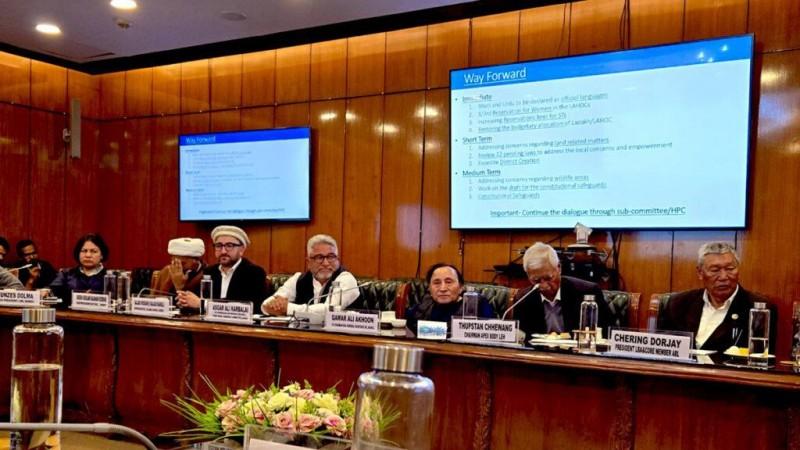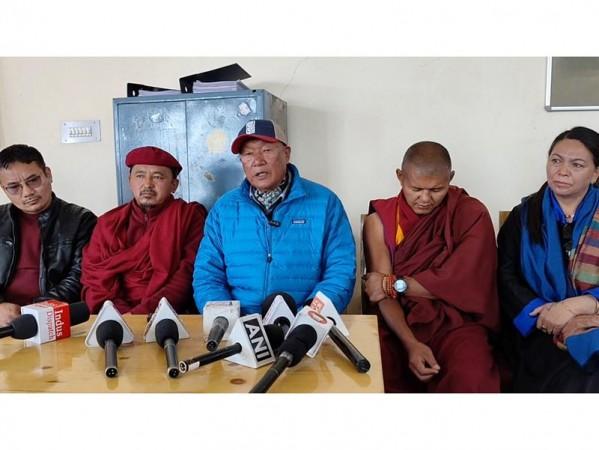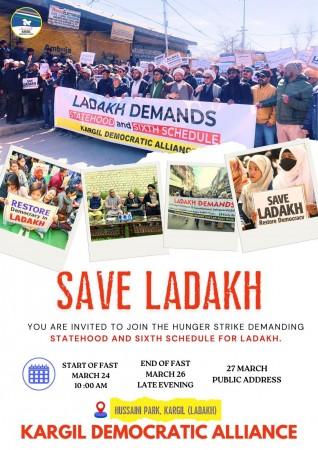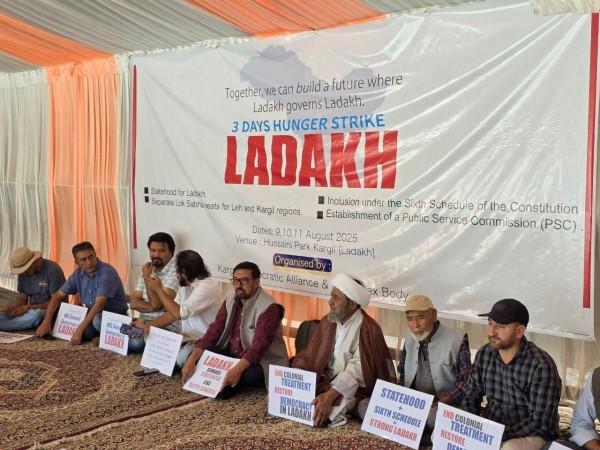
In their written charter of demands, the agitating groups of Ladakh have sought full-fledged statehood, inclusion under the Sixth Schedule, and constitutional protections under Part XXI and Article 371 of the Constitution of India.
As the Union Ministry of Home Affairs had instructed the Ladakh groups to submit a detailed written charter during a sub-committee meeting on October 22, 2025, the Leh Apex Body (LAB) and the Kargil Democratic Alliance (KDA) on Monday formally submitted a comprehensive 29-page draft framework to the Union Government for further discussions.
In their charter, the groups demanded the inclusion of Ladakh under Sixth Schedule provisions, along with a strong case for granting full statehood with safeguards under Part XXI and Article 371.
Co-convenor of the Leh Apex Body, Cherring Dorjay, told International Business Times that the written charter has been submitted to the Ministry of Home Affairs for further deliberation in the next round of talks. He expressed hope that the Union Government would accept all the "just and genuine" demands.

The agitating Ladakhi groups have proposed replacing the existing Autonomous Hill Development Councils of Leh and Kargil with more empowered Autonomous District Councils (ADCs) on the lines of ADCs under the Sixth Schedule, extending them to all current and newly created districts, including the five new districts proposed for Ladakh.
The draft framework outlines extensive legislative powers for the ADCs, including authority over land allotment, use, occupation, conservation, and regulation of land alienation to safeguard tribal and permanent residents.
It also proposes Council authority over community land management—including kahcharai and shamilat lands—and regulatory powers over mining, quarrying, natural resources, renewable and non-conventional energy, environmental protection, ecology, desert development, and agricultural water usage.

The agitating groups have also submitted "The State of Ladakh Act, 2025," alongside a proposal seeking a 30-member Legislative Assembly for the proposed State of Ladakh, with 28 seats reserved for members of the Scheduled Tribes (STs), i.e., local residents. The document also proposes two Lok Sabha seats for Ladakh.
"There shall be a common High Court for the Union Territory of Jammu and Kashmir and the State of Ladakh, to be called the High Court of Jammu and Kashmir and Ladakh," the document states.
It further proposes establishing an Autonomous District Council for each district of Ladakh in place of the present Hill Development Councils.
The submitted document primarily focuses on the following demands:
- Statehood for Ladakh with a 30-member assembly.
- Constitutional safeguards under the Sixth Schedule are to protect the region's unique environment, land, culture, and tribal population.
- A separate Public Service Commission for job security and local employment.
- Two parliamentary seats (one each for Leh and Kargil districts) to increase representation at the Centre.
- The proposal seeks sweeping legislative powers for new Autonomous District Councils, a 30-member Assembly with 28 ST-reserved seats.
- The document also included a demand for general amnesty and the release of all individuals, including climate activist Sonam Wangchuk, who were detained after the September 24, 2025 violence in Leh.
The 29-page document places maximum emphasis on statehood and Sixth Schedule status for Ladakh. These remain the two primary demands of LAB and KDA, which they have repeatedly raised with the Ministry of Home Affairs. The issues of reservations in government jobs and conditions for domicile certificates have already been resolved by the Central Government.

In a key political demand, LAB and KDA leaders have sought general amnesty for climate activist Sonam Wangchuk and others detained after the September 24 protests in Leh. They urged the Centre to withdraw all cases unconditionally, calling it vital for sustaining ongoing dialogue.
They argued that withdrawing the cases against Sonam Wangchuk and ensuring his immediate release would facilitate the dialogue process. "The extension of such a general amnesty would serve as a significant confidence-building measure, reinforcing the spirit of dialogue and mutual trust between the people of Ladakh and the Government of India," the leaders said.
"Such a gesture would also be in keeping with India's long democratic tradition of reconciliation and goodwill. The Government of India has in the past, adopted similar approaches in the North East as well as in Jammu and Kashmir, where the withdrawal of cases and release of detainees played a pivotal role in restoring normalcy and strengthening public confidence in the Union's intentions. A similar healing-hand approach in Ladakh would ensure that the region continues to remain the peaceful place it has long been known for, both in the country and the subcontinent," they added.
The draft also proposes allocating two parliamentary seats in the Lok Sabha for Ladakh and recommends a 30-member Legislative Assembly, with all members elected directly from 30 assembly segments. Of these, 28 seats are proposed to be reserved for Scheduled Tribe communities.
The draft proposal also recommends the creation of an exclusive Public Service Commission (PSC) for Ladakh. It proposes that the rules and procedures followed by the Jammu & Kashmir Public Service Commission prior to the 2019 Reorganisation Act be applied mutatis mutandis to the Ladakh PSC, ensuring a robust recruitment system tailored to local needs.









